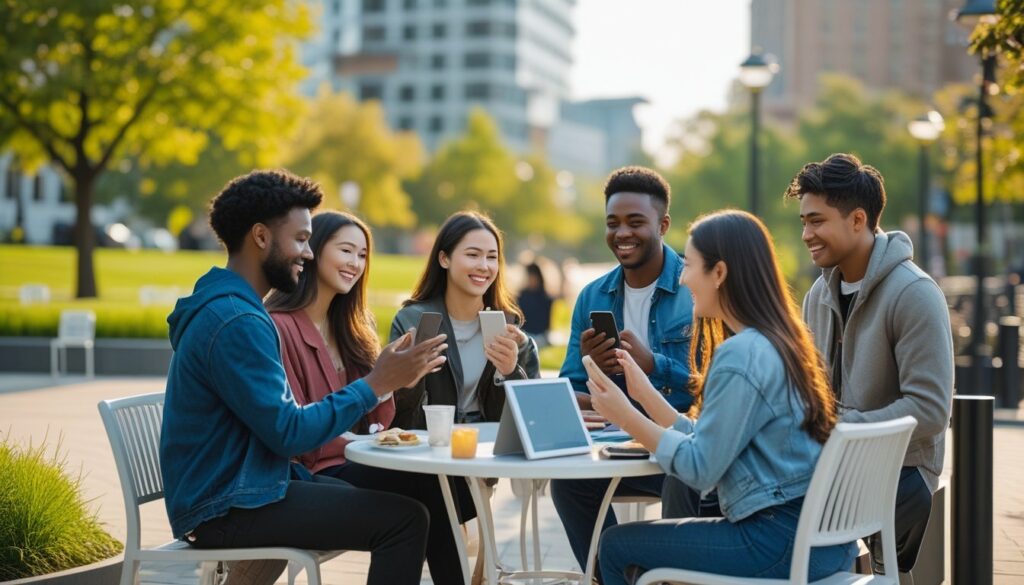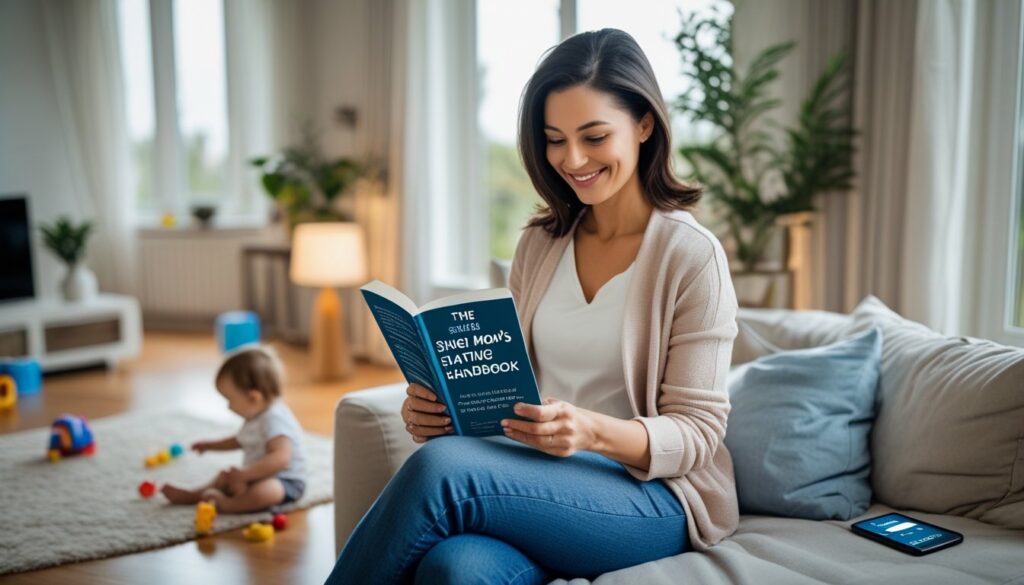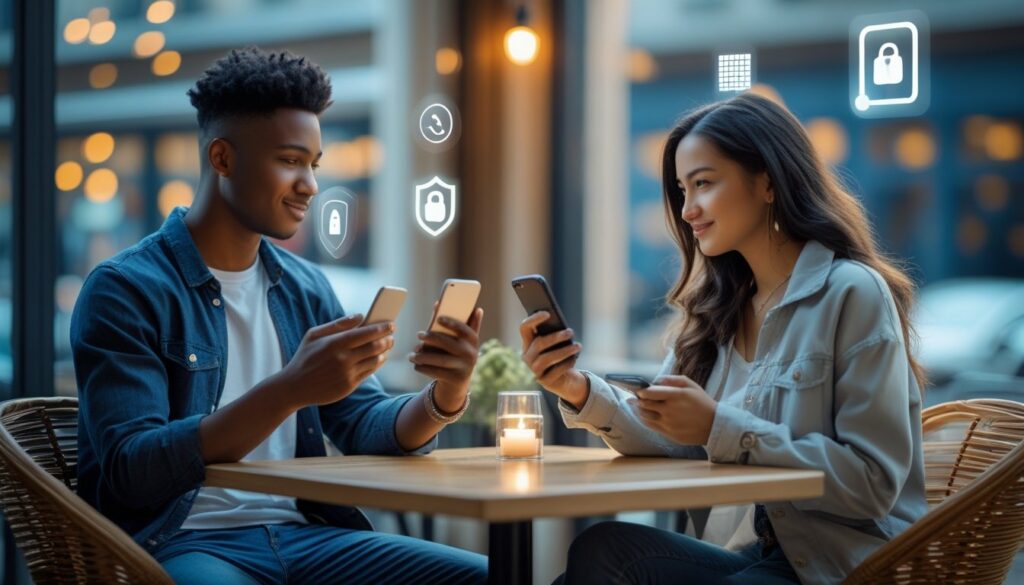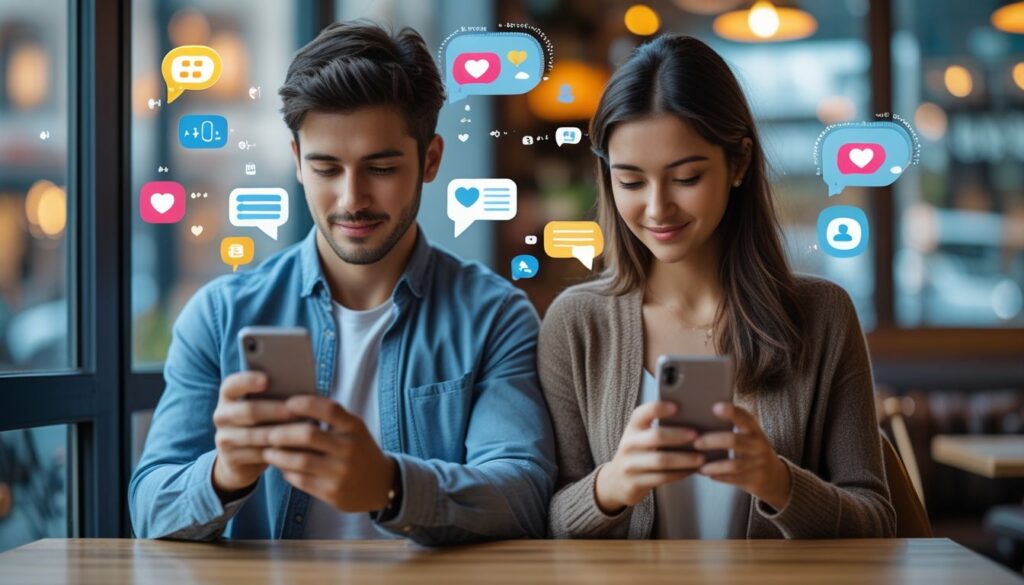The dating world looks very different now than it did before 2020. COVID-19 changed how people meet, connect, and build relationships.
Whether you’re jumping back into dating or starting fresh, the rules have shifted.
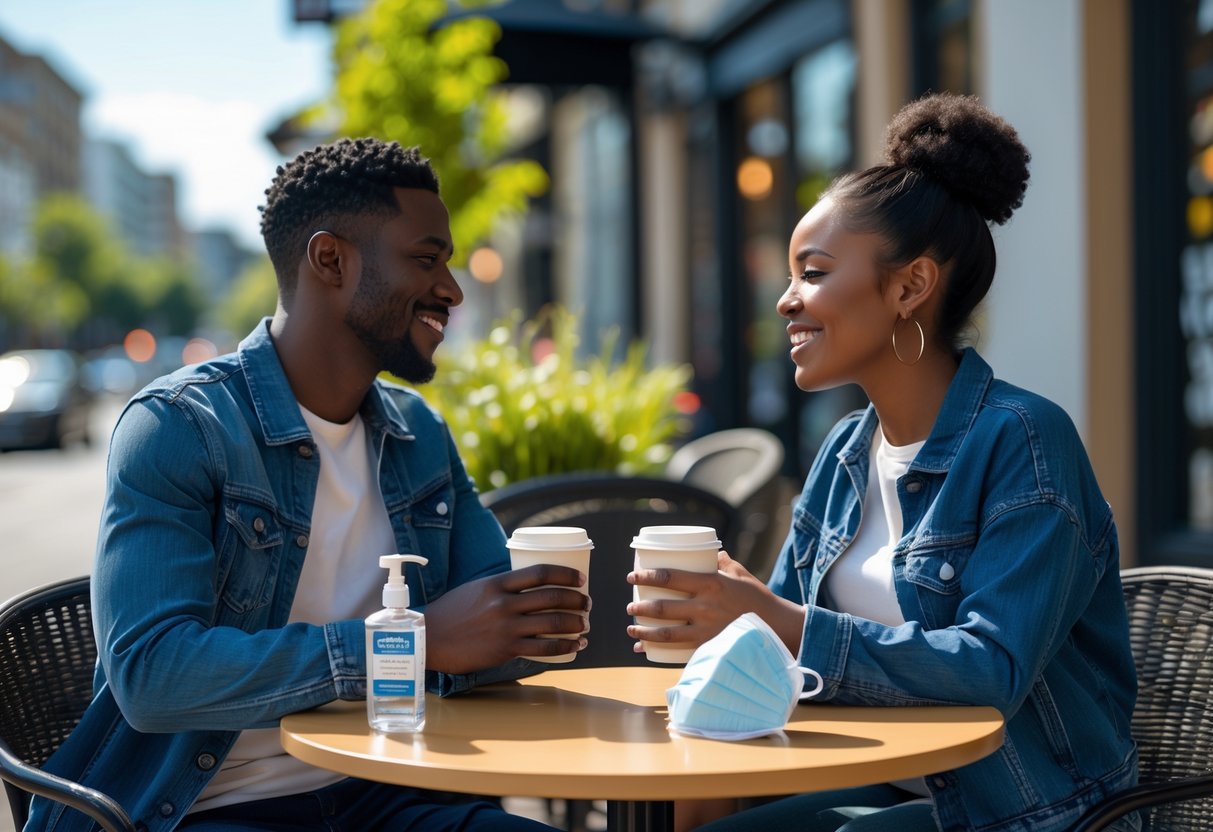
You might wonder how to balance virtual connections with in-person meetings. Many people feel nervous about dating again after years of social distancing.
These changes have also created new opportunities to connect more meaningfully with potential partners.
This guide will help you understand the new dating landscape. You’ll get practical tips for success.
You’ll learn how to navigate both online and offline dating. You’ll also build the confidence you need to find genuine connections.
Key Takeaways
- COVID-19 made virtual connections more important and changed how people approach relationships.
- Online dating evolved, and in-person dating now needs new strategies for trust and intimacy.
- Building confidence and managing dating anxiety are crucial skills for today’s dating world.
How COVID-19 Reshaped Dating
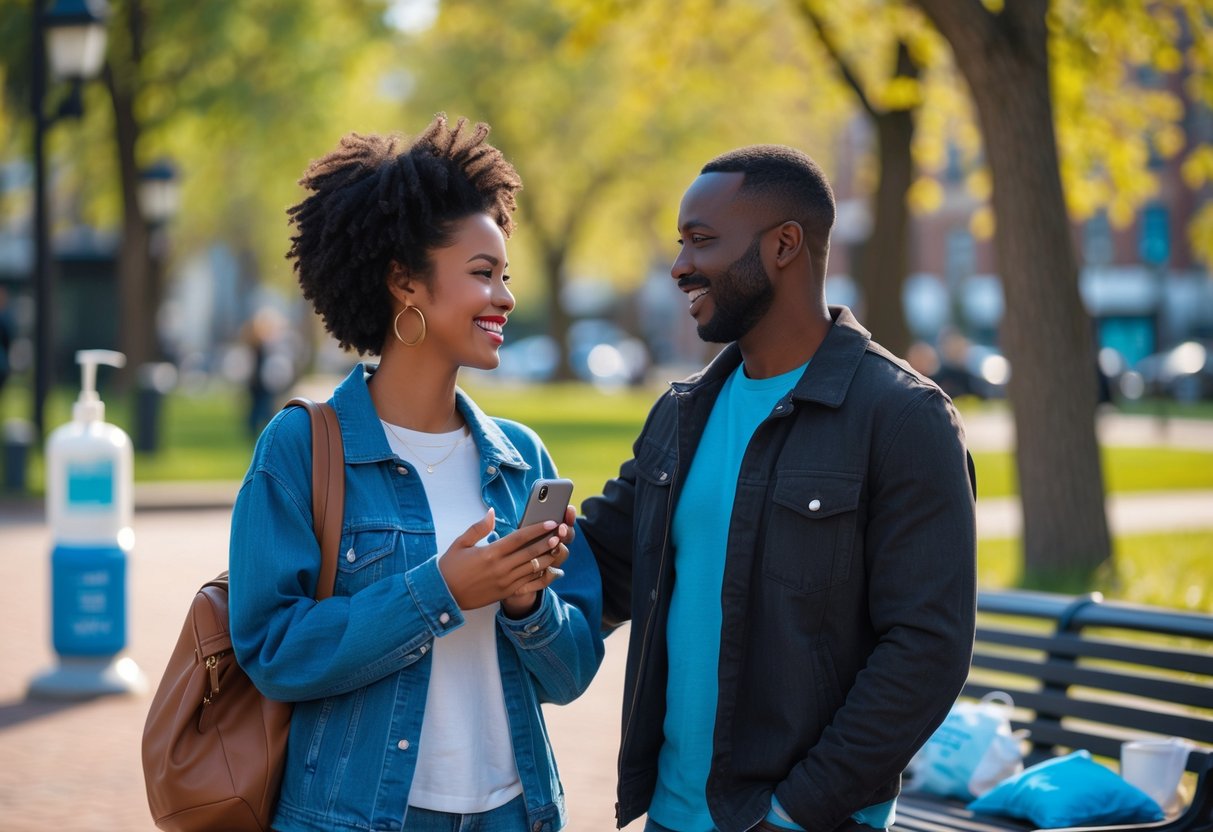
The pandemic changed how you meet people and form relationships. You faced new challenges like virtual dates and health concerns.
The Impact of Quarantine and Isolation
When lockdowns began, your dating life moved online almost overnight. You couldn’t meet at bars, restaurants, or coffee shops.
Video calls replaced first dates. Apps like Zoom and FaceTime became popular for dating.
You learned to dress up for dates in your living room. Many people experienced “dating app fatigue” and felt overwhelmed by endless swiping.
Dating apps changed to keep up:
- Bumble added video chat
- Tinder introduced “Passport” for global matches
- Hinge created virtual date prompts
Quarantine gave you more time to get to know someone before meeting. You talked for hours on the phone or texted throughout the day.
This slower pace helped some people form deeper connections.
But isolation sometimes made people feel lonely or desperate for contact. Some rushed into relationships quickly just to feel less alone.
Changes in Social Distancing Norms
Social distancing created new dating rules. Six feet apart became the standard, even on dates.
Outdoor dates became popular. You might have gone hiking, had picnics, or walked in parks instead of dining indoors.
Masks changed how you met new people. You couldn’t see full faces or read facial expressions easily.
Some people felt less confident about their appearance with masks. Health became a dating topic.
You probably asked dates about their vaccination status or recent COVID exposure. These conversations became normal.
Many people created “COVID bubbles” with their dating partners. You might have agreed to only see each other and avoid other social contacts.
This created intense, exclusive relationships faster than usual.
Mental and Emotional Health Effects
The pandemic affected your mental health and changed how you approached dating. Anxiety and depression rates increased during this time.
Fear became part of dating. You worried about getting sick from meeting someone new.
Many people became more selective about who they dated. You didn’t want to waste time on casual encounters when meeting felt risky.
This led to more serious, intentional dating. Emotional support became more important.
You looked for partners who could handle stress and uncertainty. Empathy and communication skills mattered more than before.
Some people experienced relationship burnout from spending too much time together during lockdowns. You might have moved in together quickly or spent all your time with someone, which felt overwhelming.
The pandemic also made you think about what really matters in a partner. You wanted someone reliable and caring during tough times.
The Evolution of Online and Virtual Dating
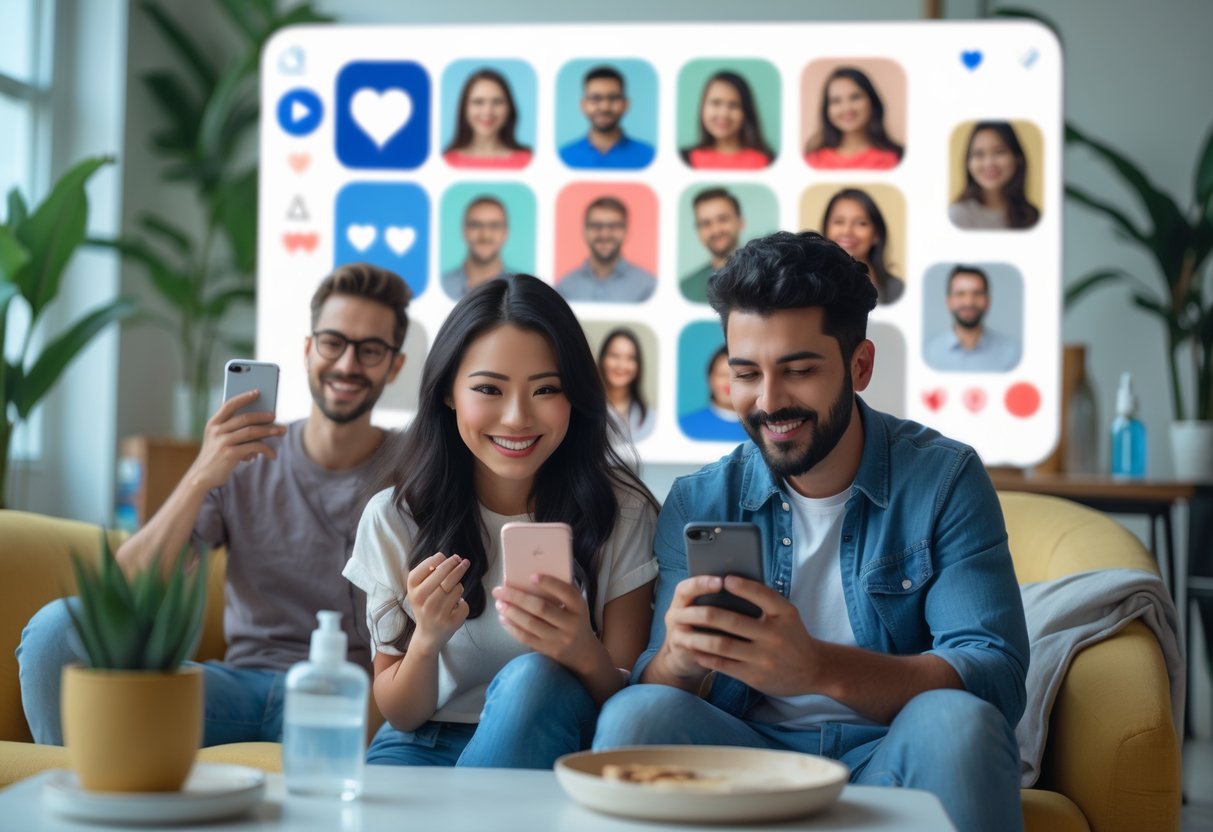
Dating apps grew rapidly during the pandemic. Many platforms added video features to help people connect safely.
Virtual dates became the new normal. People found creative ways to build relationships without meeting in person.
Surge in Online Dating Platforms
Dating apps became more popular when lockdowns began. Tinder saw a 3 billion swipe day in March 2020, breaking records.
Bumble reported a 70% increase in video calls during the same period. New users joined platforms like OkCupid, which saw a 700% spike in planned dates.
People who never tried online dating started downloading apps just to meet someone new.
Apps competed to keep you engaged. Each platform rushed to add new features, like virtual backgrounds and personality quizzes.
Many apps also dropped their premium fees for a while. This made advanced features easier to access during tough economic times.
Rise of Virtual Dating Experiences
Video dates became standard almost overnight. Apps quickly added built-in video calling so you wouldn’t need to share your phone number.
Creative virtual date ideas became popular. People hosted online cooking classes, virtual museum tours, and Netflix watch parties.
You could “travel” together through virtual reality experiences. Some dating apps partnered with entertainment companies to offer unique activities.
Bumble launched in-app games and virtual events to help break the ice. The quality of virtual dates improved.
Better lighting, camera angles, and good conversation became important. Many people discovered they liked getting to know someone through video first.
Adapting to Digital Intimacy
Building emotional connections through screens required new skills. You had to learn how to read body language on video calls and create intimacy without physical presence.
Communication styles changed. Text messaging became more important.
People spent time crafting messages or choosing the right emoji. Trust-building worked differently in digital spaces.
Sharing personal details through video calls felt different than in person. Many found that virtual dating helped them open up more easily.
Online and offline relationships started to blend. Some couples dated virtually for months before meeting in person.
This created stronger emotional bonds, but also brought new challenges when meeting face-to-face.
Navigating In-Person Connections in a Post-COVID Era
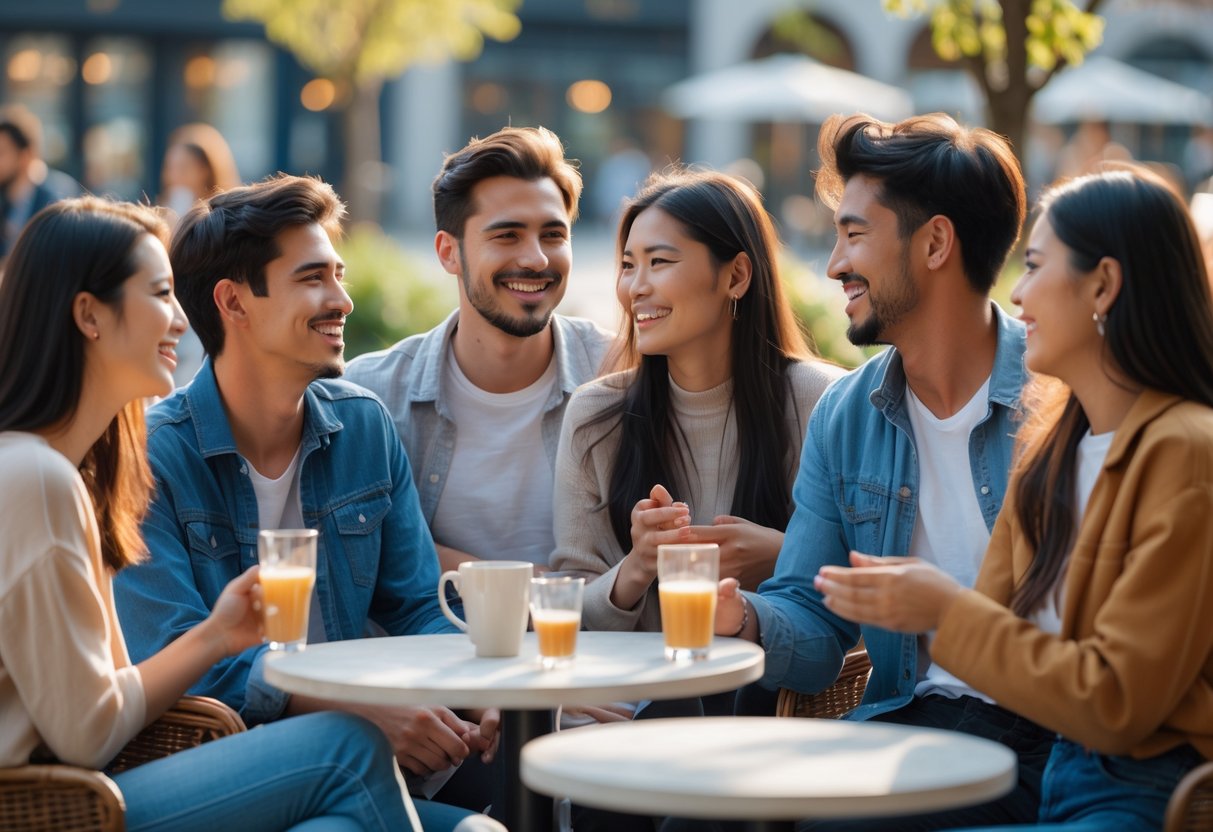
Meeting someone face-to-face after months of video calls takes new skills. You need to balance safety concerns with authentic connection.
You also have conversations about health that didn’t exist before 2020.
Transitioning from Screens to IRL Dating
Moving from digital to in-person dating can feel awkward. Your online chemistry might not match real-world interactions.
Start with low-pressure meetings like coffee dates or outdoor walks. These settings feel less intense and give an easy exit if things don’t click.
Your conversation skills might feel rusty. Practice active listening and ask open-ended questions.
Body language matters more in person than on screen. Many people feel nervous about their appearance after months of video filters.
Focus on being comfortable, not perfect. Your date is probably just as nervous as you.
Consider planning shorter first dates. An hour-long coffee date puts less pressure on both of you than a long dinner.
Evaluating Safety and Health Precautions
Think about health safety as well as personal safety when meeting new people. This adds a new layer to first-date planning.
Choose well-ventilated spaces for indoor meetings. Restaurants with good air flow or outdoor patios work well.
Avoid crowded, poorly ventilated places for early dates. Social distancing might still matter to you or your date.
Discuss comfort levels before meeting. Some people prefer outdoor activities like hiking or park visits.
These options provide natural social distancing and allow for easy conversation. Hand hygiene remains important to many daters.
Carry hand sanitizer and use it discreetly. Pay attention to your date’s comfort signals.
If they step back when you move closer, respect that boundary.
Mask Usage and Vaccination Conversations
Talking about masks and vaccines on dates is now normal. Handle these conversations with care and respect.
Discuss mask preferences before meeting if you’re unsure. Some people feel safer wearing masks in certain settings.
Vaccination status comes up naturally now. You might ask, “Are you fully vaccinated?” as casually as asking about food preferences.
Most people understand this question comes from health concerns. Don’t assume everyone shares your comfort level with masks or vaccines.
Some people still prefer wearing masks in public spaces. Others feel comfortable without them.
Respect different approaches to COVID precautions. If your date wants to keep masks on, support their choice.
If they’re more relaxed, don’t judge them. These health conversations often happen while planning dates.
You might say, “I’m fully vaccinated and comfortable with indoor dining. How do you feel about that new restaurant downtown?”
Redefining Intimacy and Relationship Goals
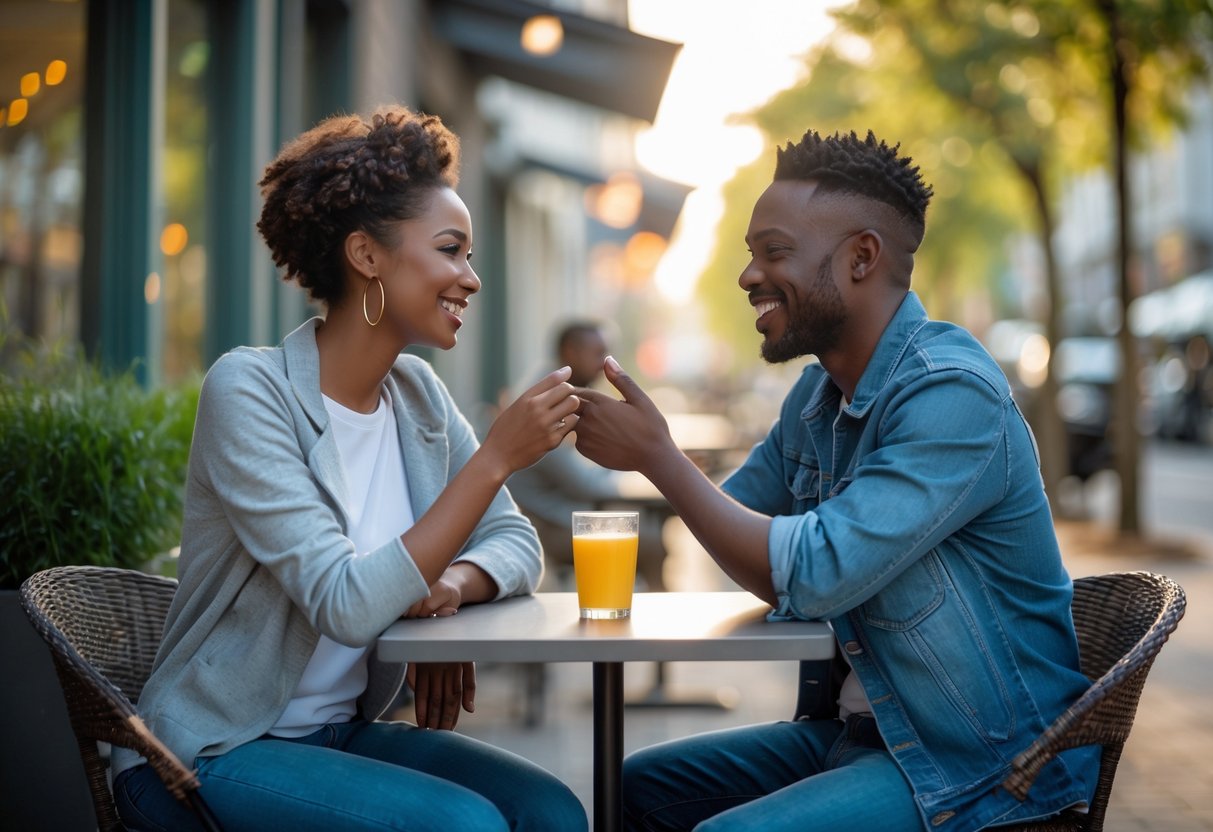
The pandemic changed how you think about closeness and relationships. Many people now focus more on emotional connection.
You may also question whether you want casual dating or something deeper.
Intimacy after Social Isolation
Lockdowns taught you that physical touch isn’t the only way to feel close. Video calls, long texts, and virtual dates became new ways to bond.
You might value emotional intimacy more now. Sharing fears, dreams, and daily moments feels more important after being alone.
Building intimacy today looks different:
- You have deeper conversations earlier
- You share vulnerable feelings faster
- Quality time matters more than fancy dates
- Mental health discussions are normal
Many people feel rusty with in-person connection. You might feel nervous about physical touch or reading body language.
Your definition of intimacy probably expanded. You may now see listening, supporting each other’s goals, or just being present as intimate acts.
Trust builds differently too. You learned to rely on someone’s words and actions over video calls.
This skill helps you focus on what people do, not just how they look.
Casual Sex Versus Long-Term Relationships
The pandemic made many people rethink what they want from dating. Some crave casual fun after isolation.
Others want deep, lasting connections. Casual sex appeals to some because they missed physical connection or want to explore without commitment.
But casual dating feels empty to others now. You might want someone who will stay during tough times.
Long-term relationships offer benefits like emotional support, consistent social connection, and shared goals.
Your choice depends on what you learned about yourself during isolation. Did you enjoy being alone, or did you want partnership?
Many people now date with clearer intentions. You’re more likely to say what you want upfront.
This honesty helps you find better matches faster. The key is knowing what makes you happy.
Whether that’s casual dating or serious relationships, be honest about your needs.
Building Confidence and Overcoming Dating Anxiety
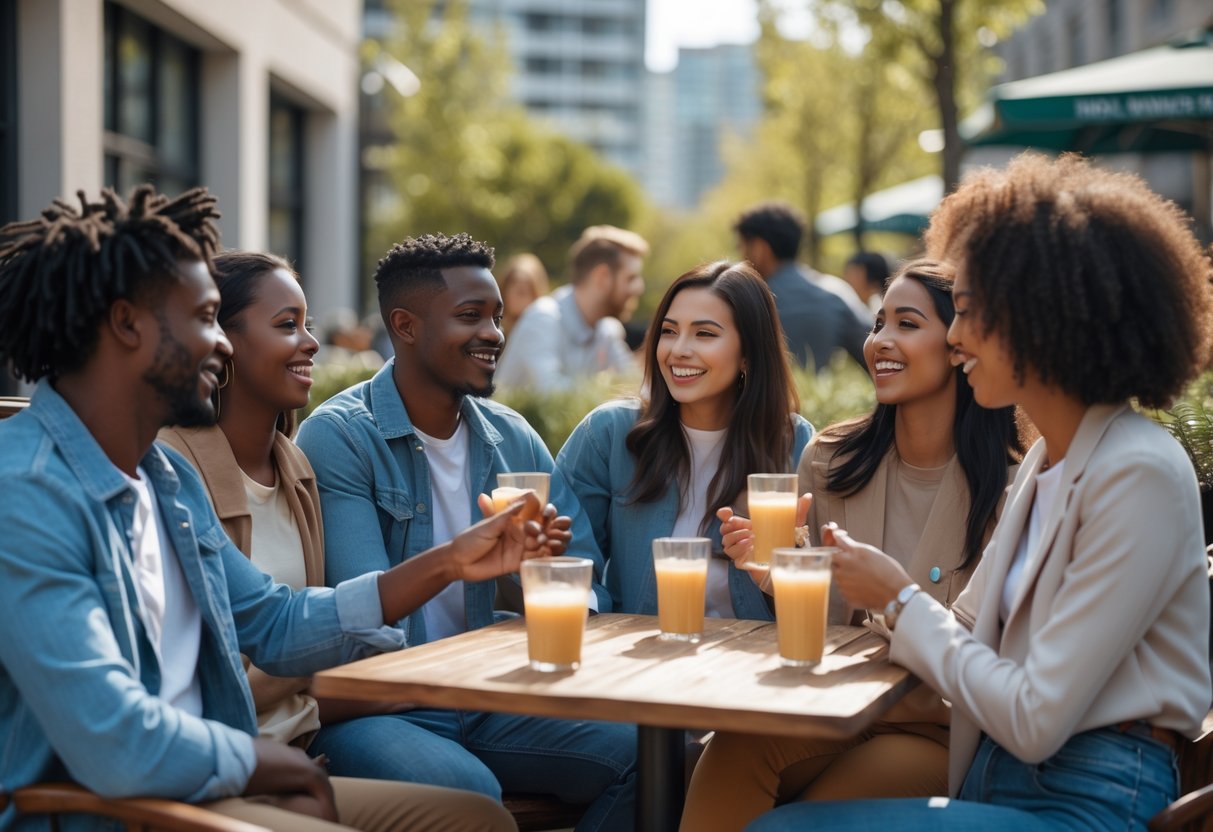
Many people struggle with talking to potential partners after being away from dating for so long. The fear of rejection and awkward conversations can make starting over feel overwhelming.
Breaking Communication Barriers
Starting conversations can feel difficult when you haven’t practiced in a while. You might worry about saying the wrong thing or running out of topics.
Practice makes perfect. Talk to friends, family, or even strangers in low-pressure situations first. This helps you feel more comfortable with casual conversation.
Here are simple conversation starters that work well:
- Ask about their hobbies or interests.
- Comment on something in your shared environment.
You can also share a funny observation about your day. Ask open-ended questions that encourage longer answers.
Focus on listening more than talking. People enjoy conversations when they feel heard. Ask follow-up questions about what they share.
Try video calls to practice before meeting in person. You will get used to reading facial expressions and body language on a screen.
Addressing the Fear of Dating Again
Dating anxiety often comes from fear of judgment or past bad experiences. These feelings are normal after taking time away from dating.
Start small to build your confidence. Choose coffee dates or short activities instead of long dinners. This puts less pressure on both of you.
Deep breathing exercises can calm your nerves before dates. Take three slow breaths and remind yourself that the other person may feel nervous too.
Remember that rejection isn’t personal. Not every person will be a good match, and that’s okay.
Set realistic expectations for yourself. You don’t need to be perfect or have everything figured out.
Authenticity matters more than trying to impress someone.
Looking Ahead: The Future of Dating
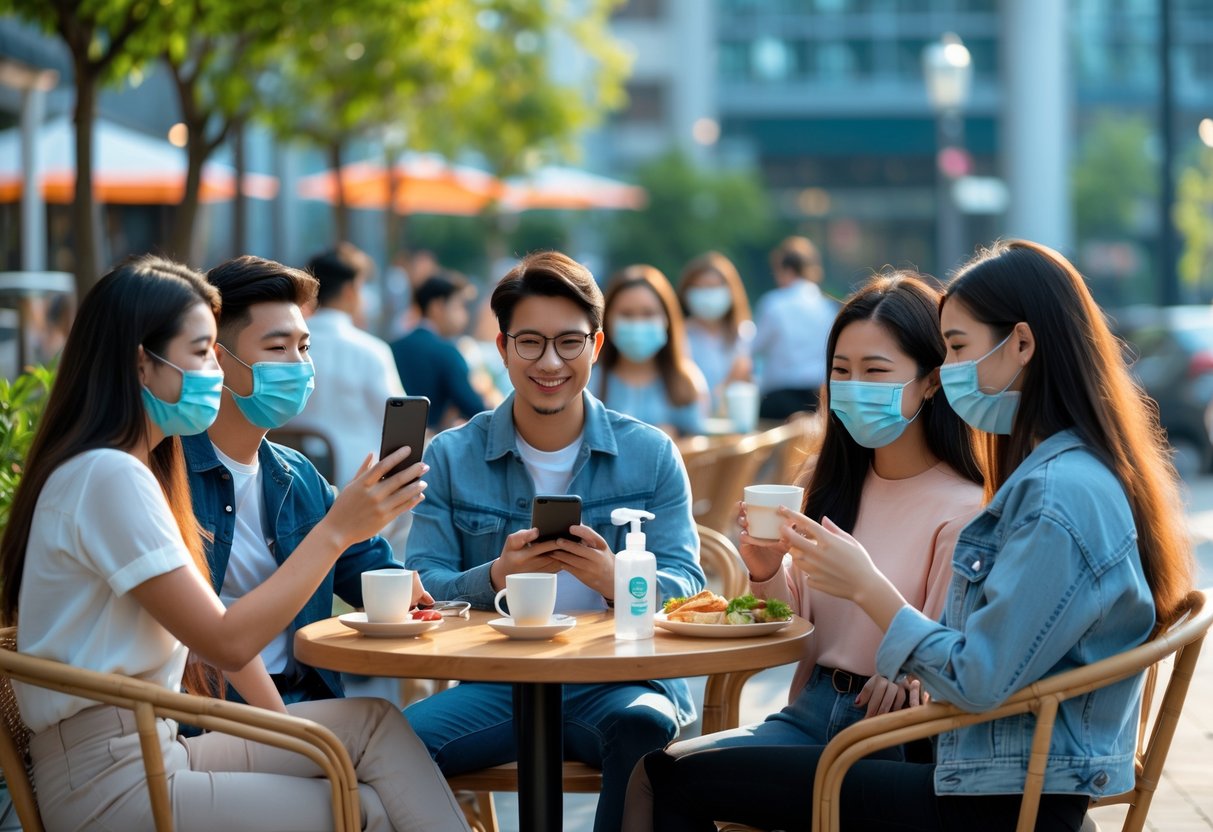
Dating keeps changing as technology advances and social habits shift. New trends are reshaping how you meet people, while fresh social rules are replacing old dating customs.
Trends Shaping the Modern Dating Scene
Video calls have become the new first date. Many people now prefer virtual meetings before meeting in person.
This saves time and helps you get to know someone better.
Dating apps add new features often. Voice notes, video profiles, and personality tests help you connect on deeper levels.
Some apps now focus on shared interests rather than just photos.
Slow dating is gaining popularity. People are taking more time to build connections instead of rushing into relationships.
This means longer conversations and multiple virtual dates before meeting.
Here are the biggest changes you’ll see:
- Location-based matching is becoming more flexible.
- Group dating through apps is increasing.
- Professional matchmaking services are growing.
- Niche dating platforms for specific interests.
Authenticity matters more than ever. People want real connections, not perfect social media profiles.
Many now share honest photos and are upfront about their goals.
Adapting to New Social Norms
Health conversations are now normal first-date topics. You might discuss wellness habits, lifestyle choices, and personal boundaries early on.
This openness builds trust faster.
Digital communication has new rules. People care more about message quality than response times.
You should be direct about your intentions and feelings.
Meeting logistics have changed completely. You might suggest outdoor activities, video dates, or small group settings.
People rarely choose traditional dinner dates for first meetings.
Relationship timelines are more flexible now. Some couples move in together quickly.
Others take months to meet in person. You can set your own pace.
Financial expectations are shifting too. People accept splitting bills more often.
Expensive dates matter less. You focus on compatibility instead of impressive gestures.
Personal space means something different now. You respect each other’s comfort levels with physical contact and social activities.
You discuss these boundaries openly instead of assuming them.

